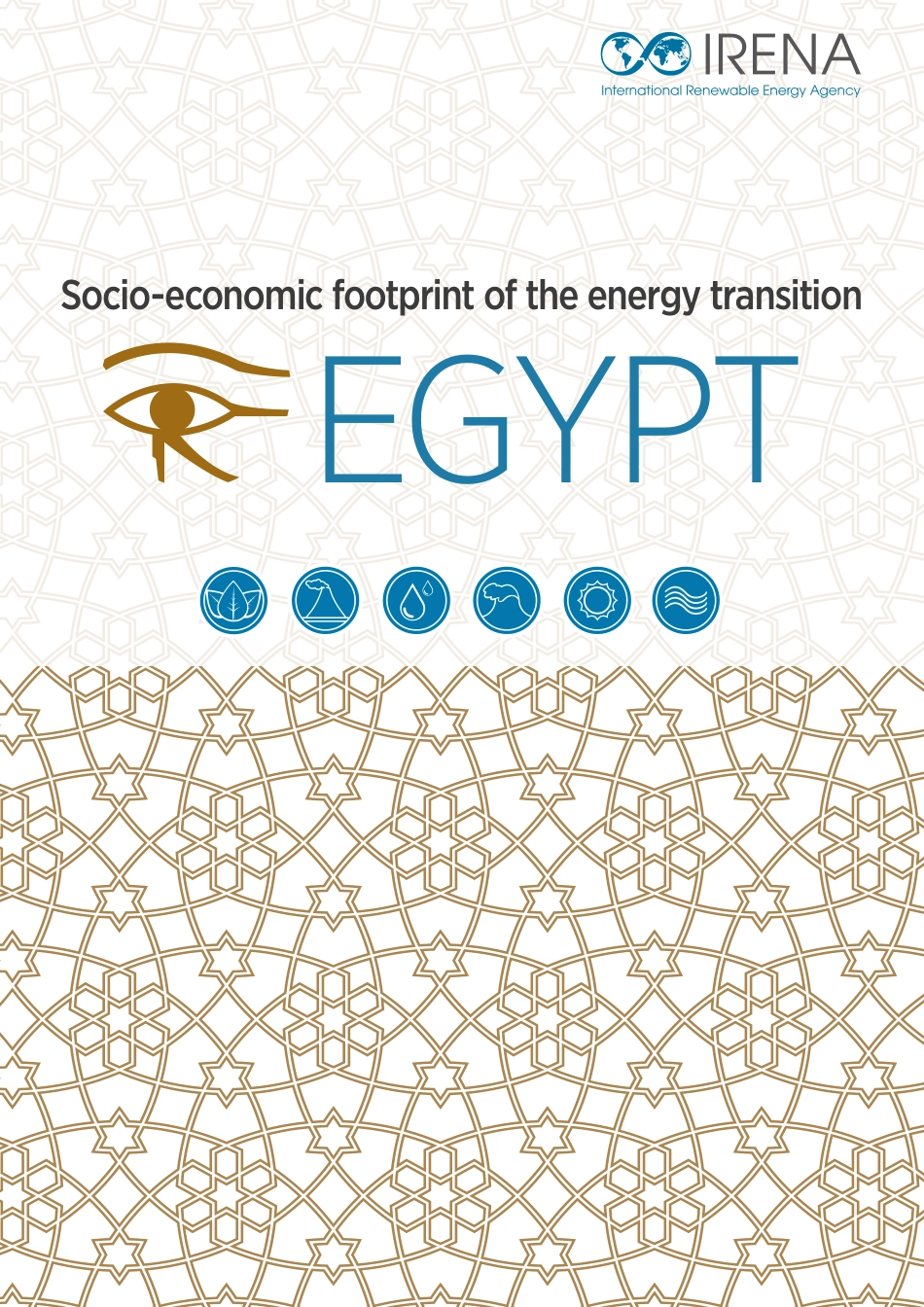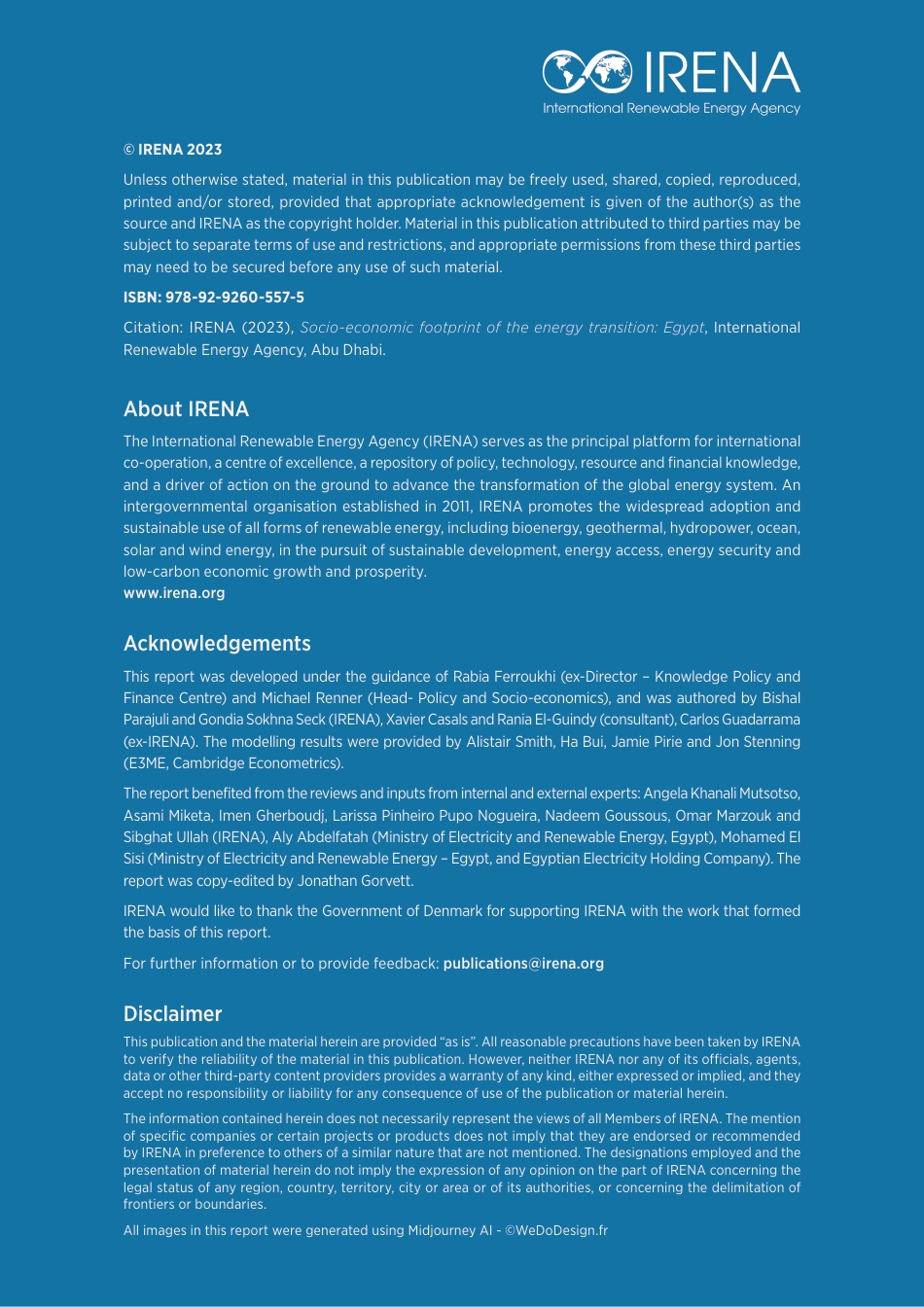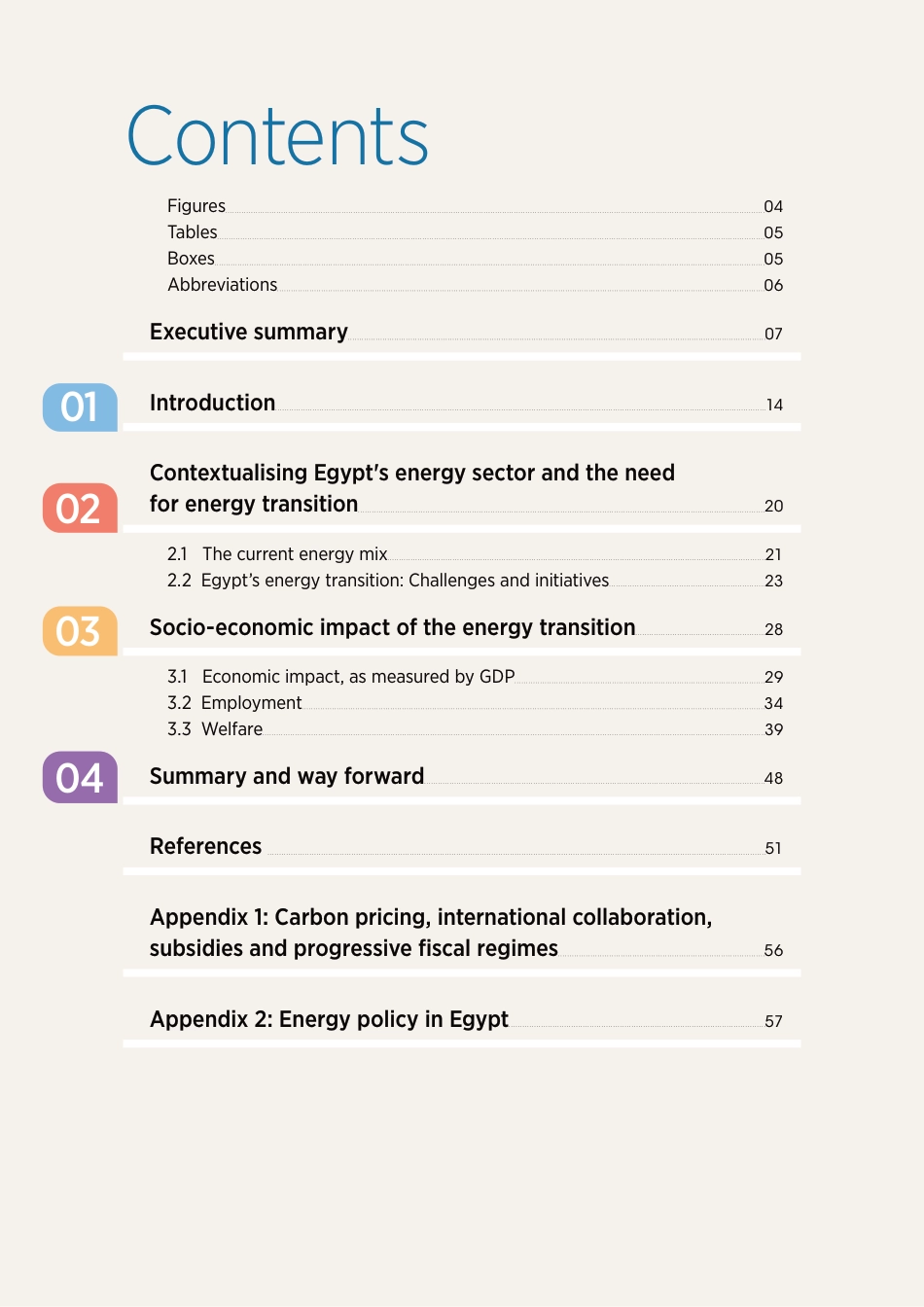EGYPTSocio-economic footprint of the energy transition2© IRENA 2023Unless otherwise stated, material in this publication may be freely used, shared, copied, reproduced, printed and/or stored, provided that appropriate acknowledgement is given of the author(s) as the source and IRENA as the copyright holder. Material in this publication attributed to third parties may be subject to separate terms of use and restrictions, and appropriate permissions from these third parties may need to be secured before any use of such material.ISBN: 978-92-9260-557-5Citation: IRENA (2023), Socio-economic footprint of the energy transition: Egypt, International Renewable Energy Agency, Abu Dhabi.About IRENAThe International Renewable Energy Agency (IRENA) serves as the principal platform for international co-operation, a centre of excellence, a repository of policy, technology, resource and financial knowledge, and a driver of action on the ground to advance the transformation of the global energy system. An intergovernmental organisation established in 2011, IRENA promotes the widespread adoption and sustainable use of all forms of renewable energy, including bioenergy, geothermal, hydropower, ocean, solar and wind energy, in the pursuit of sustainable development, energy access, energy security and low-carbon economic growth and prosperity. www.irena.orgAcknowledgementsThis report was developed under the guidance of Rabia Ferroukhi (ex-Director – Knowledge Policy and Finance Centre) and Michael Renner (Head- Policy and Socio-economics), and was authored by Bishal Parajuli and Gondia Sokhna Seck (IRENA), Xavier Casals and Rania El-Guindy (consultant), Carlos Guadarrama (ex-IRENA). The modelling results were provided by Alistair Smith, Ha Bui, Jam...



